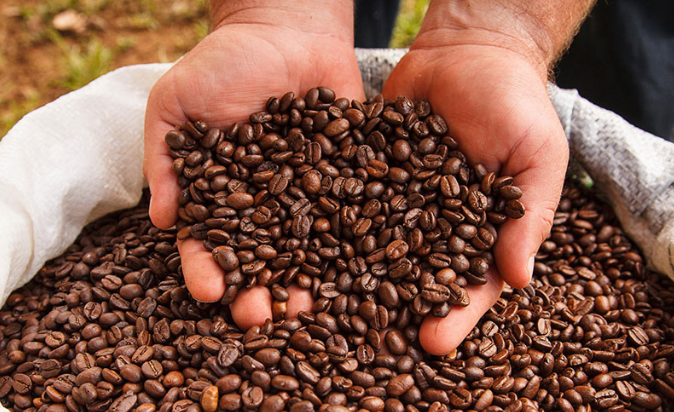Coffee Plantations Wager on Sustainability
- Dec. 24, 2022
- FMCG HORECA BUSINESS

Pinhal Farm, with 42% of its area protected among Eucalyptus and other natural trees, has been named Brazil's most sustainable farm, with O'Coffee in second place.
Pinhal, a favorite of specialty coffee connoisseurs in the United Kingdom, Germany, Finland, Australia, Saudi Arabia, and China, won the award due to its innovative use of technology and sustainable crop management through the preservation of flora and fauna and the reduction of fertilizers and pesticides. BSCA (Brazil Specialty Coffee Association) and ApexBrasil promote "Brazil. The Coffee Nation," of which both farms are a member (Brazilian Trade and Investment Promotion Agency).
Globo Rural Magazine, the premier rural journal in Brazil, presented the prizes in its most recent issue. This is significant since Pinhal and O'Coffee battled against all of Brazil's agricultural producers in a country where more than 19 million people work in agriculture on a daily basis.
Pinhal, located in Santo Antônio do Amparo, Minas Gerais, is operated by Pedro Reis and his sister, Mariana Reis Teixeira — the sixth generation of speciality coffee producers in the Teixeira family. Acaiá, Arara, Bourbon, Castilho, Catinguá, Red Catua, Yellow and Red Geisha, Icatu, Topázio, and Uva are among the kinds grown.
The farm's sustainability activities include the installation of solar panels for electricity production and a substantial decrease in the usage of water, fertilizers, pesticides, and fuel. Additionally, Pinhal Farm collaborated with a number of schools to enable kids to plant trees on the plantation. Additionally, the family has designated land for the rehabilitation and release of natural wildlife.
Since we cannot alter the world, let's begin with ourselves. Sustainable production is crucial if we are to strive toward a future climate that is more favorable. In addition to influencing those around us and with whom we interact, this is also our goal. Pedro Reis, who oversees Pinhal's day-to-day operations, said, "Sustainability is an ongoing process, and it is essential to generate momentum and, ideally, encourage others to follow suit."
At the Pedregulho, So Paulo, Brazil location of O'Coffee, sustainable practices are also a focus. The rapidly expanding farm produces its own compost, coffee powder, and water from the processing of beans. Additionally, O'Coffee cultivates native plant species to offset carbon emissions. Among the innovations is the use of telemetry to encircle the tractor fleet, which accurately administers each drop of water while taking climatic conditions and soil moisture into consideration.
"We deal with individuals, and effective practices emerge from their way of thinking and behaving. This adds to what we refer to as a balanced carbon balance, in which we use best practices to minimize carbon emissions while forest areas and coffee plants work to neutralize carbon dioxide, according to Ubion Terra, executive director of O'Coffee.
O'Coffee was formed in 1940 and sells to roughly twenty countries, including the United States, United Kingdom, Switzerland, Belgium, Norway, Greece, Australia, Canada, South Korea, Japan, Russia, Taiwan, Kuwait, and Argentina. Acaia, Yellow Bourbon, Yellow and Red Catuai, Catucai, Mundo Novo, Icatu, and Arara are among the kinds cultivated.
James Combs, buyer and owner of Combs' Coffee in the United States, which buys more Brazilian coffee than any other nation, prioritizes sustainable agricultural practices when determining which product to purchase. "Sustainability is really important to me, since my company is green-certified. Therefore, I fly straight to the farms to meet the farmers and assess the sustainability of the location. Combs said, "I feel that farmers in Brazil are taking it seriously and working hard to be sustainable on a large scale."
Brazilian coffee is related with environmental preservation and the rise in the Human Development Index (HDI); it is grown in 1,988 municipalities and 34 production areas around the country. The nation is the world's biggest exporter of coffee and is regarded the worldwide leader in the coffee industry. In 2021, 122 nations imported coffee from Brazil, and 40,4 million 60-kilogram bags were shipped at a value of $6.24 billion.
"BSCA works in an informative manner to share the heritage and tales behind the Brazilian product, but focuses primarily on showcasing the sustainable production currently practiced by coffee growers in order to fulfill the stricter market standards. Vinicius Estrela, the executive director of the Brazilian Sustainable Coffee Organisation (BSCA), said that the association encourages its members to grow coffee using sustainable methods.
BRAZIL. THE COFFEE NATION
Is a sector initiative launched by BSCA and Apex-Brasil that focuses on the worldwide commercial promotion of Brazilian products. Using research-based cutting-edge technology, the purpose is to enhance the global reputation of Brazilian coffee beans and to establish the nation as a premium supplier.
I Canada, the United States, China, South Korea, Japan, Germany, Spain, Poland, the United Kingdom, Turkey, the United Arab Emirates, and Saudi Arabia for specialty coffee beans; and ii) Canada, China, the United Arab Emirates, Chile, and the United States for roasting and grinding industry products.
The initiative also intends to bring to light the specific certification and traceability systems implemented in the national production of speciality coffees, emphasizing their social and environmental responsibility and giving Brazilian goods a competitive edge.
Pinhal Farm, with 42% of its area protected among Eucalyptus and other natural trees, has been named Brazil's most sustainable farm, with O'Coffee in second place.
Pinhal, a favorite of specialty coffee connoisseurs in the United Kingdom, Germany, Finland, Australia, Saudi Arabia, and China, won the award due to its innovative use of technology and sustainable crop management through the preservation of flora and fauna and the reduction of fertilizers and pesticides. BSCA (Brazil Specialty Coffee Association) and ApexBrasil promote "Brazil. The Coffee Nation," of which both farms are a member (Brazilian Trade and Investment Promotion Agency).
Globo Rural Magazine, the premier rural journal in Brazil, presented the prizes in its most recent issue. This is significant since Pinhal and O'Coffee battled against all of Brazil's agricultural producers in a country where more than 19 million people work in agriculture on a daily basis.
Pinhal, located in Santo Antônio do Amparo, Minas Gerais, is operated by Pedro Reis and his sister, Mariana Reis Teixeira — the sixth generation of speciality coffee producers in the Teixeira family. Acaiá, Arara, Bourbon, Castilho, Catinguá, Red Catua, Yellow and Red Geisha, Icatu, Topázio, and Uva are among the kinds grown.
The farm's sustainability activities include the installation of solar panels for electricity production and a substantial decrease in the usage of water, fertilizers, pesticides, and fuel. Additionally, Pinhal Farm collaborated with a number of schools to enable kids to plant trees on the plantation. Additionally, the family has designated land for the rehabilitation and release of natural wildlife.
Since we cannot alter the world, let's begin with ourselves. Sustainable production is crucial if we are to strive toward a future climate that is more favorable. In addition to influencing those around us and with whom we interact, this is also our goal. Pedro Reis, who oversees Pinhal's day-to-day operations, said, "Sustainability is an ongoing process, and it is essential to generate momentum and, ideally, encourage others to follow suit."
At the Pedregulho, So Paulo, Brazil location of O'Coffee, sustainable practices are also a focus. The rapidly expanding farm produces its own compost, coffee powder, and water from the processing of beans. Additionally, O'Coffee cultivates native plant species to offset carbon emissions. Among the innovations is the use of telemetry to encircle the tractor fleet, which accurately administers each drop of water while taking climatic conditions and soil moisture into consideration.
"We deal with individuals, and effective practices emerge from their way of thinking and behaving. This adds to what we refer to as a balanced carbon balance, in which we use best practices to minimize carbon emissions while forest areas and coffee plants work to neutralize carbon dioxide, according to Ubion Terra, executive director of O'Coffee.
O'Coffee was formed in 1940 and sells to roughly twenty countries, including the United States, United Kingdom, Switzerland, Belgium, Norway, Greece, Australia, Canada, South Korea, Japan, Russia, Taiwan, Kuwait, and Argentina. Acaia, Yellow Bourbon, Yellow and Red Catuai, Catucai, Mundo Novo, Icatu, and Arara are among the kinds cultivated.
James Combs, buyer and owner of Combs' Coffee in the United States, which buys more Brazilian coffee than any other nation, prioritizes sustainable agricultural practices when determining which product to purchase. "Sustainability is really important to me, since my company is green-certified. Therefore, I fly straight to the farms to meet the farmers and assess the sustainability of the location. Combs said, "I feel that farmers in Brazil are taking it seriously and working hard to be sustainable on a large scale."
Brazilian coffee is related with environmental preservation and the rise in the Human Development Index (HDI); it is grown in 1,988 municipalities and 34 production areas around the country. The nation is the world's biggest exporter of coffee and is regarded the worldwide leader in the coffee industry. In 2021, 122 nations imported coffee from Brazil, and 40,4 million 60-kilogram bags were shipped at a value of $6.24 billion.
"BSCA works in an informative manner to share the heritage and tales behind the Brazilian product, but focuses primarily on showcasing the sustainable production currently practiced by coffee growers in order to fulfill the stricter market standards. Vinicius Estrela, the executive director of the Brazilian Sustainable Coffee Organisation (BSCA), said that the association encourages its members to grow coffee using sustainable methods.
BRAZIL THE COFFEE NATION
Is a sector initiative launched by BSCA and Apex-Brasil that focuses on the worldwide commercial promotion of Brazilian products. Using research-based cutting-edge technology, the purpose is to enhance the global reputation of Brazilian coffee beans and to establish the nation as a premium supplier.
I Canada, the United States, China, South Korea, Japan, Germany, Spain, Poland, the United Kingdom, Turkey, the United Arab Emirates, and Saudi Arabia for specialty coffee beans; and ii) Canada, China, the United Arab Emirates, Chile, and the United States for roasting and grinding industry products.
The initiative also intends to bring to light the specific certification and traceability systems implemented in the national production of speciality coffees, emphasizing their social and environmental responsibility and giving Brazilian goods a competitive edge.











